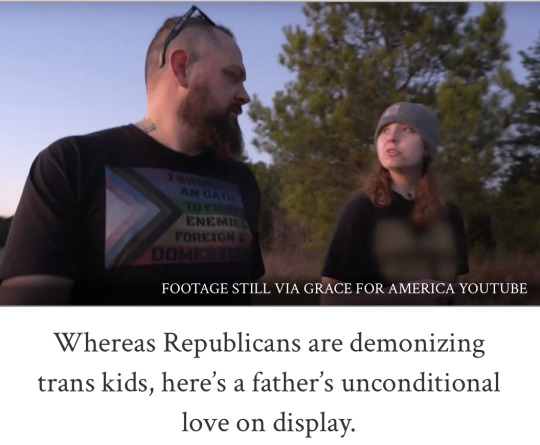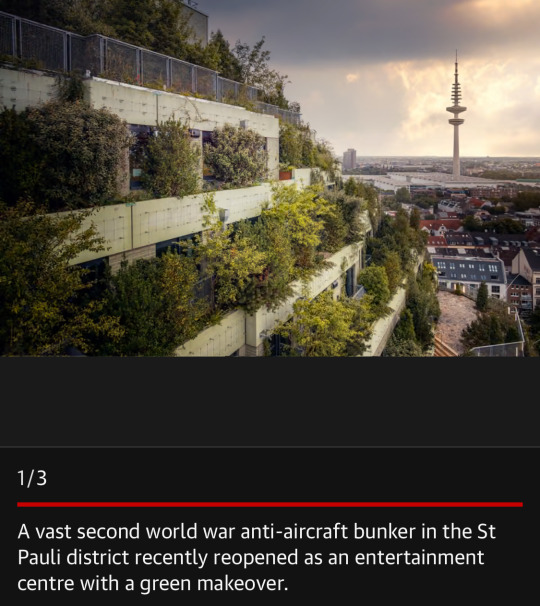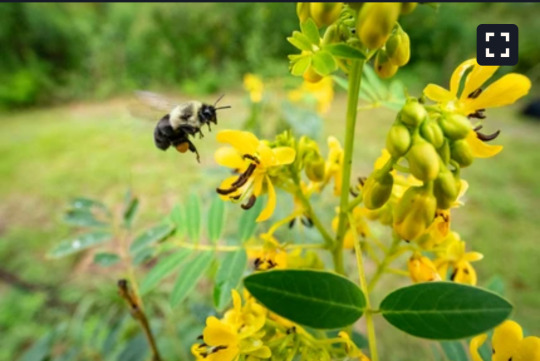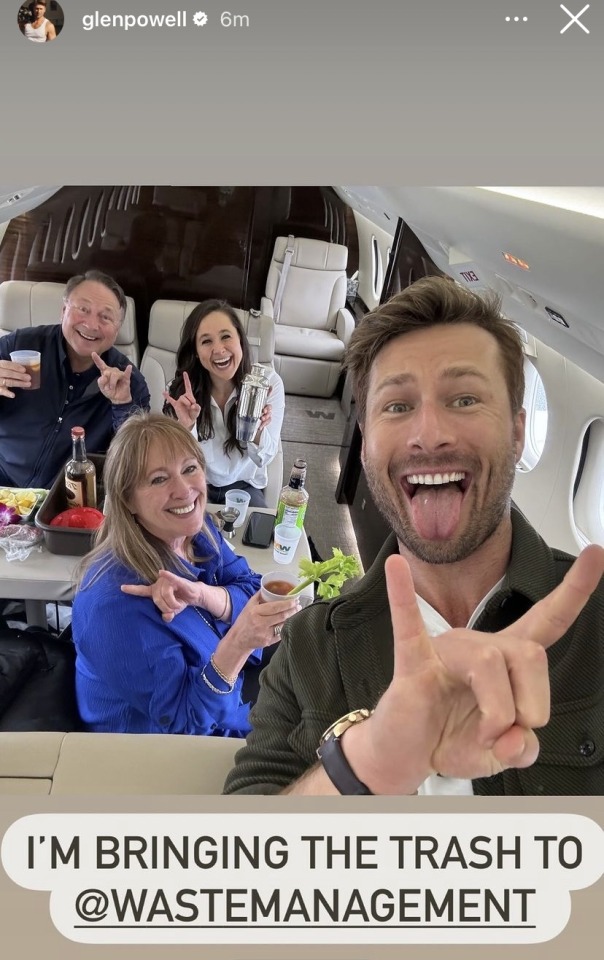#Waste Management
Explore tagged Tumblr posts
Text
Sports have gotten more and more environmentally friendly, whether it's by reducing plastic waste at arenas, or producing medals with recycled materials. But what if the sport itself was devoted to directly helping the planet? Take a look at SpoGomi, a competitive sport in which teams collect garbage and litter within a time limit and specified area. People get to exercise and improve their communities while simultaneously reducing pollution. It's an overall win!
The name “SpoGomi” comes from “sports” and “gomi,” which means “trash” in Japanese. SpoGomi was created in Japan in 2008 as a way to promote trash collecting in an effort to aid the environment and push back on the climate crisis. “The marine litter problem is becoming increasingly serious worldwide,” reads a message from SpoGomi. “Approximately 80% of the garbage in the ocean is said to come from land (cities), and picking up garbage is the ‘last line of defense' to prevent this from happening. By connecting countries and people, we have expanded our circle even further around the world.”
Now, supported by The Nippon Foundation, the sport is so popular that there are competitions around the world, including the first SpoGomi World Cup, which was held in Japan in November 2023. People from 20 countries and all of Japan's prefectures participated, with the UK team coming out in first place.
SpoGomi is more than simply picking up trash, though, as there's a whole set of rules. These game rules are flexible depending on the area and litter to be picked up. Generally, teams are made up of three to five members who have to collect as much trash as possible within a designated area and time limit. The most common duration is an hour for picking up trash plus another 20 minutes to correctly sort it.
Some trash can be extra damaging to the environment or harder to spot, meaning each piece of litter gets a different amount of points. According to Nippon.com, the rules for World Cup regional preliminary rounds have burnable and nonburnable trash at 10 points per 100 grams, cans and bottles at 12 points, and PET plastic bottles at 25 points. The crown jewel of competitive trash picking are cigarette butts, which will get the team 100 points each.
Other rules stipulate that teams cannot pick up trash that is already in bins that belong to someone else. Since everything must fit into the trash bags that are provided, they cannot pick hazardous waste or bulky items either. And since this is meant to improve the local area, any method of transportation other than walking is frowned upon.
In the end, all participants can bask in the pride of making the environment just a little bit cleaner and healthier. Udagawa Takayasu, a spokesperson for The Nippon Foundation, even admits, “I participated in a preliminary tournament held in Japan just last weekend. Although our team could not win and I faced frustration, the city became markedly cleaner. I think it's one of the fascinating aspects of SpoGomi, even if you don't win, it leaves you with a positive sentiment.”
-via My Modern Met, May 20, 2024
--
Hell yeah, gamify this shit!
#litter#trash#pollution#garbage#waste#waste management#environment#plastic#plastic waste#plastic pollution#japan#asia#good news#hope
1K notes
·
View notes
Text
Buying second hand is punk!
Upcycling is punk!
Selling/donating old shit is punk!
DIYing is punk!
#nico thought about this#punk#punk fashion#punk rock#thrifting#diy punk#battle jacket#crust pants#crust punk#zero waste#waste management#conscious consumerism#capitalism
1K notes
·
View notes
Text
Dandelion News - October 22-28
Like these weekly compilations? Tip me at $kaybarr1735 or check out my Dandelion Doodles on Patreon!
1. Industrial wastelands to wildlife oases: Five nature wins that have actually worked

“[An archipelago in the Indian ocean] experienced a major whale comeback after signing up to a debt for nature swap[….] In Sri Lanka's capital of Colombo, local efforts have transformed what was once a rubbish dump to a wetland teeming with [wildlife….]”
2. Louisville launches America’s first 100% electric garbage truck fleet

““These innovative EV collection trucks will fulfill our trash, compost and recycling needs, reduce noise pollution, and include larger windshields to increase each driver’s field of vision and lower greenhouse gas emissions[….]” [The trucks are equipped with] audible devices that alert nearby drivers and pedestrians to compensate for their quieter operations.”
3. How a nearly extinct crocodile species returned from the brink in Cambodia

“By the late nineties, [Siamese crocodiles] were thought to be extinct. […] Today there are about 1,000 Siamese crocodiles in the wild[….] The first crocodiles were reintroduced into the wild in 2012 and they have begun breeding in the wild: over a hundred eggs were discovered in the forests in July, the most so far.”
4. Before his death, this conservative combat veteran filmed a PSA advocating for his transgender son

““Eric [“a conservative South Carolina U.S. Army combat veteran and father of a transgender child”] believed in the importance of freedom for trans kids — the right to live authentically and without fear,” [his widow] said. “He saw this not as a political issue but as a human one, recognizing that every child deserves the chance to thrive and feel whole.”” [Curator’s note: obviously, utmost condolences to Eric’s family; I’m including this as good news because it’s impactful to see a respectable member of the political party more often known for transmisia instead publicly advocating for his son’s human - not just political - rights]
5. Azores to create largest Marine Protected Area in North Atlantic – and a 'blueprint' for the rest of the world

““The Azores’ waters are a hotspot for marine life, hosting a third of the world's whale and dolphin species,[…” and harbouring] “cold-water corals and sponge fields that act as nurseries and feeding grounds for countless species, from deep-sea sharks to commercially valuable fish stocks.””
6. ‘It’s a big lever for change’: the radical contract protecting Hamburg’s green space

“Citizen power forced Germany’s greenest city-state into a binding agreement balancing housing and nature[….] The authorities signed an agreement with the citizen’s initiative to protect 30% of Hamburg’s land area – 10% as untouchable nature reserves and 20% with a looser conservation status – and ensure the share of public green space in the city rises over time.”
7. Behind the Scenes at the Federal Bee Lab Powered by Native Plants

“Once native plants reappeared at the lab, he says, the impact was dramatic. In the first year, many of the region’s 200 native bee species arrived in droves. [… B]irds Droege had never before seen on the premises began to turn up to feed on the native plant seeds[….]”
8. Atlanta neighborhood hired case manager to address rising homelessness. It's improving health and safety for everyone

“Michael Nolan, an Intown Cares social worker, is trained in an approach that emphasizes individual autonomy and dignity, recognizes that being homeless is a traumatic experience, and prioritizes access to housing. [… H]iring a social worker has enabled East Atlanta Village to resolve conflicts gently, through conversation and negotiation.”
9. Loggerhead Sea Turtle Nests Make a Remarkable Comeback in Greece

“As long-lived and migratory species, [loggerheads] contribute to the health of seagrass beds and coral reefs, which are vital habitats for many marine organisms. Their nesting activities also contribute to beach ecosystems and help promote biodiversity.”
10. Rapid genome analysis of a Whippet sighthound sets new standard for biodiversity research

“[Scientists] have sequenced and analyzed the complete genome of a Whippet sighthound in less than a week. […] Rapid analysis is increasingly important for the conservation of endangered species, [… giving] insights into their biological relationships, evolution and adaptations to environmental conditions.”
October 15-21 news here | (all credit for images and written material can be found at the source linked; I don’t claim credit for anything but curating.)
#hopepunk#good news#conservation#wildlife#habitat#habitat restoration#electric vehicles#waste management#crocodiles#reptiles#conservatives#veterans#trans rights#protect trans kids#human rights#ocean#whale#dolphin#shark#coral reef#germany#native plants#native bees#bees#homelessness#homeless#unhoused#sea turtle#dogs#genetics
40 notes
·
View notes
Text
#waste management#waste colonialism#capitalism#recycling#plastic pollution#plastics#plastic#plastic recycling#thailand#colonization#colonialism
26 notes
·
View notes
Text
19 notes
·
View notes
Text

Glen posting this while being paired with the Number 1 ranked golfer 😆
Scottie better be prepared for a Happy Gilmore moment! It’s called the peoples open for a reason lol
78 notes
·
View notes
Text

13 notes
·
View notes
Text
Theravada & Zoomo - Municipal
8 notes
·
View notes
Text
“This is the Old Ladies Against Underwater Garbage,” or OLAUG for short, explains retired psychologist Susan Baur. The youngest member of the group that Baur founded is 65; at 82, she’s the oldest.
😭
defs read the entire article if you can bc its so good
#this is the best#good news#nature#environmentalism#environment#water#water is life#waste management#trash#lakes
57 notes
·
View notes
Text
"The Netherlands is pulling even further ahead of its peers in the shift to a recycling-driven circular economy, new data shows.
According to the European Commission’s statistics office, 27.5% of the material resources used in the country come from recycled waste.
For context, Belgium is a distant second, with a “circularity rate” of 22.2%, while the EU average is 11.5% – a mere 0.8 percentage point increase from 2010.
“We are a frontrunner, but we have a very long way to go still, and we’re fully aware of that,” Martijn Tak, a policy advisor in the Dutch ministry of infrastructure and water management, tells The Progress Playbook.
The Netherlands aims to halve the use of primary abiotic raw materials by 2030 and run the economy entirely on recycled materials by 2050. Amsterdam, a pioneer of the “doughnut economics” concept, is behind much of the progress.
Why it matters
The world produces some 2 billion tonnes of municipal solid waste each year, and this could rise to 3.4 billion tonnes annually by 2050, according to the World Bank.
Landfills are already a major contributor to planet-heating greenhouse gases, and discarded trash takes a heavy toll on both biodiversity and human health.
“A circular economy is not the goal itself,” Tak says. “It’s a solution for societal issues like climate change, biodiversity loss, environmental pollution, and resource-security for the country.”
A fresh approach
While the Netherlands initially focused primarily on waste management, “we realised years ago that’s not good enough for a circular economy.”
In 2017, the state signed a “raw materials agreement” with municipalities, manufacturers, trade unions and environmental organisations to collaborate more closely on circular economy projects.
It followed that up with a national implementation programme, and in early 2023, published a roadmap to 2030, which includes specific targets for product groups like furniture and textiles. An English version was produced so that policymakers in other markets could learn from the Netherlands’ experiences, Tak says.
The programme is focused on reducing the volume of materials used throughout the economy partly by enhancing efficiencies, substituting raw materials for bio-based and recycled ones, extending the lifetimes of products wherever possible, and recycling.
It also aims to factor environmental damage into product prices, require a certain percentage of second-hand materials in the manufacturing process, and promote design methods that extend the lifetimes of products by making them easier to repair.
There’s also an element of subsidisation, including funding for “circular craft centres and repair cafés”.
This idea is already in play. In Amsterdam, a repair centre run by refugees, and backed by the city and outdoor clothing brand Patagonia, is helping big brands breathe new life into old clothes.
Meanwhile, government ministries aim to aid progress by prioritising the procurement of recycled or recyclable electrical equipment and construction materials, for instance.
State support is critical to levelling the playing field, analysts say...
Long Road Ahead
The government also wants manufacturers – including clothing and beverages companies – to take full responsibility for products discarded by consumers.
“Producer responsibility for textiles is already in place, but it’s work in progress to fully implement it,” Tak says.
And the household waste collection process remains a challenge considering that small city apartments aren’t conducive to having multiple bins, and sparsely populated rural areas are tougher to service.
“Getting the collection system right is a challenge, but again, it’s work in progress.”
...Nevertheless, Tak says wealthy countries should be leading the way towards a fully circular economy as they’re historically the biggest consumers of natural resources."
-via The Progress Playbook, December 13, 2023
#netherlands#dutch#circular economy#waste management#sustainable#recycle#environment#climate action#pollution#plastic pollution#landfill#good news#hope
522 notes
·
View notes
Text

This is what happens to all of the unsold apples
#This is what happens to all of the unsold apples#fundamental law of capitalism...#wasteland#waste management#zero waste#wastewatertreatment#food waste#food stim#foodstagram#foodsafety#foodsecurity#foods#foodie#foodporn#food photography#foodgasm#food#food should be free#fruits#fruits basket#forbidden fruit#fruits and vegetables#fruit salad#fruit#appless rp#applesauce#appless roleplay#apples never fall#apple seeds#apples
18 notes
·
View notes
Text




i started collecting this garbage feel free to add more to the steaming pile
16 notes
·
View notes
Text





#time travel#read#text#txt#trade#military#police#colony#colonial farm#copper#waste management#fallout#fall out boy#fall out#cubic popcorn#movie theater popcorn#cube#the smell of tobacco#the smell of tobacco - cube - cubes
12 notes
·
View notes
Text
Nearly half of Montreal's 19 boroughs aren't recycling glass, despite telling residents on the city website they can put it in their blue bin or bag.
Recycling in eight boroughs is taken to the sorting centre in the city's Saint-Michel neighbourhood, which is managed by the company Ricova. The 11 other boroughs' recycling goes to a new $47-million facility in Lachine, operated by another company contracted by the city, Société VIA.
Both sorting centres have had trouble separating glass from other recyclables, as well as cleaning it — but the Saint-Michel centre is the latest to have come under scrutiny for not even trying.
The 20,000 tonnes of glass Ricova collects in Montreal ends up in landfills or is ground into powder and used as landfill cover as a replacement for sand. Landfill cover is spread over garbage at the end of each day to minimize odours, flyaways and prevent animals from getting into it. [...]
Continue Reading.
Tagging: @politicsofcanada
76 notes
·
View notes
Text

Challenge #04346-K328: Early Childcare
There's something to be said about need being the parental of invention. A small, sharp needle, some thin wire, and a lot of imagination can move mountains. -- Anon Guest
[AN: A little elementary research has shown me that the concept of a fastening device that doesn't hurt its wearer is older than you think it is. Look up fibula brooches. You're welcome.]
There's something to be said about loving another to the point of invention. Loving someone so much that creating for them is the logical and best conclusion. Such love is usually rare between adults. For parents of children... it's more frequent than one might think.
It's easy to love your baby to the point of invention, seeing to their needs and making their tiny lives so much easier.
Which included how to keep a tailclout attached to a very small and helpless being.
[Check the source for the rest of the story]
4 notes
·
View notes